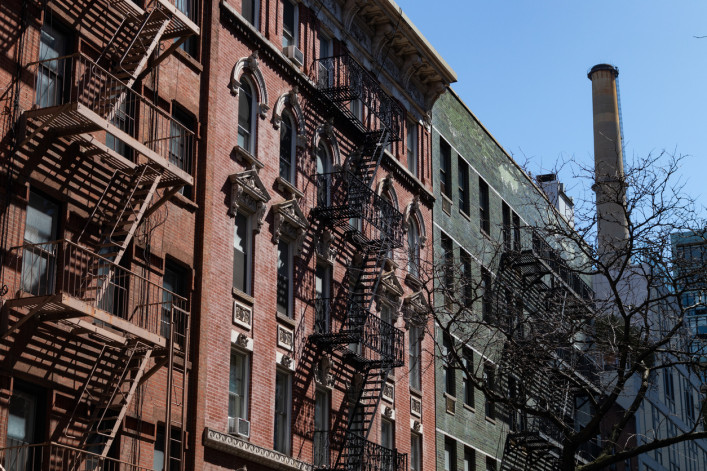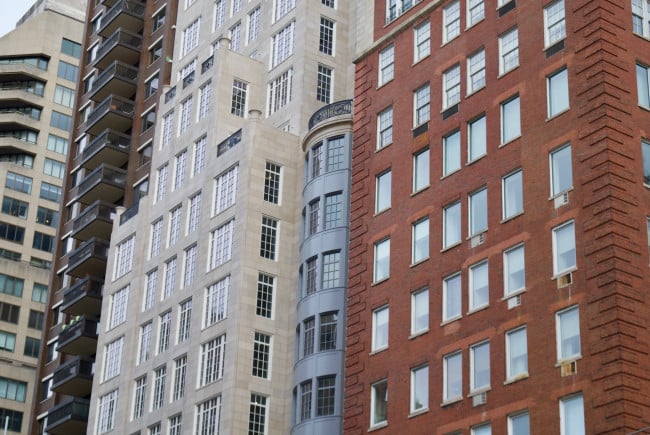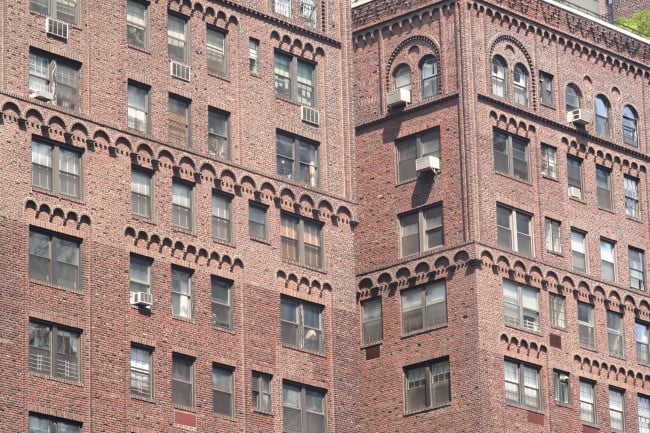When you're buying a NYC co-op, is it risky to skip the home inspection?
- In most cases it's neither typical nor cost effective to have an inspection for a co-op
- The building's financial statements will indicate how well it is being managed

Rather than getting a home inspection, with the help of your attorney you'll want to make sure the building is investing in capital repairs and has money to spend if there's an emergency.
iStock
I have an offer accepted on a co-op and want to do a home inspection but my agent says it's not standard practice in NYC. It's a $650 expense I'd like to avoid if it isn't necessary but I'm concerned about the risk of not doing one. What do you advise?
A home inspection for a co-op or condo in New York City isn't standard practice, our experts say. Unlike a townhouse, where things like the boiler and the integrity of the facade are the owner's responsibility, in a co-op or condo, the systems that service an entire building are the shared responsibility of all the apartment owners and are overseen by the board.
Dean Roberts, a real estate attorney at Norris McLaughlin in Manhattan, says in most cases it's neither typical nor cost effective to have a co-op home inspection. "A better course of action is to review the board minutes and the accounting statements to see if there is an organized plan for maintenance and the upgrade of building systems," he says.
For example, you'll want to see that the building has a reserve account and is conducting capital-project assessments for the building.
Your attorney will look into how the building is run
A reserve fund is the money a building has access to if a structural issue is uncovered, like the roof is leaking or the boiler fails. A well-run building has at least three months of carrying costs in reserve or a quarter of the annual operating costs set aside for emergencies. Of course, the goal is to avoid emergency repairs so that's why you also want to see capital investments over time. For example, with the help of your attorney you can check to see if the building is investing in elevator modernization or energy-efficiency initiatives. The latter is important for buildings to comply with Local Law 97, which addresses building emissions.
"When reviewing a co-op purchase, I often ask the managing agent for the last engineering report for the building," says Roberts. A building with a low reserve account and no planned or recently completed capital projects usually indicates a board is not spending necessary money on building maintenance.
Bianca D'Alessio, a broker at Nest Seekers International, says an attorney's due diligence, which includes access to board meeting minutes and a questionnaire from the managing agent, provides the most comprehensive insight into the structural components of the building.
So skipping the home inspection for a co-op doesn't present a major risk, as long as you are finding the relevant information elsewhere. Deanna Kory, a broker at Corcoran, says inspections are conducted in about 15 percent of the deals she does. Either way, she makes sure to provide a checklist for buyers reminding them to test outlets, appliances, and water pressure in the apartment, as well as making sure there are tub and sink stoppers.
Co-op contracts have protections in place for buyers
With a co-op, you also have protections in the contract. Attorney Stephen W. Allen, a partner in the residential real estate department at Romer Debbas, points out most co-op contracts call for all systems and appliances to be delivered in working order, unless there's a specific item identified as being delivered in "as is" condition. A buyer is then given the opportunity to do a final walk-through 48 hours before closing to ensure the contractual obligations have been met by the seller.
"If there is an issue found at the final walkthrough, it is important to know who is responsible for its repair so that the right procedures can be put in place at, or prior, to the closing," he says.
Finding information from other sources
Depending on the size of the building, a building's chat group can also be a good source of information. "If everyone's complaining about boilers not working you know there are capital improvement issues," Roberts says.
Kory reminds buyers to look for evidence of leaks on floor, walls and ceilings as well as under sinks and in closets.
If you're buying in a brand new building—which would typically be a condo rather than a co-op— it's always good to try to speak to someone who has already lived in the building to see what they are experiencing. In new developments a lot of the defects are subtle or don't come to the surface for some time after they begin operating.
Another issue to consider is how substantive the inspection would be and whether it would affect your decision-making. "My experience recently is that inspections are very pro forma with a great deal of boilerplate language and not a lot of substantive analysis," Roberts says.
D'Alessio points out that a home inspector will very rarely be granted access to any of the common elements, such as the roof, or mechanical rooms within a co-op building. "This means an inspector would essentially be limited to looking around within the four walls of the home and not at any of the “big-ticket” items you would generally call on an inspector to check out," she says.
Inspections do give peace of mind for a big investment
If you have specific concerns you think could be addressed by an inspection, there's something to be said for getting peace of mind from an expert. For a smaller co-op or condo with six units or less or if the apartment you're buying is on the top floor, an inspection might make sense. The smaller the building, the heavier the burden on owners for capital repairs. "Many small buildings and townhouses are self managed or have small management companies and may not have handy the information on the building the way a larger building may have," Kory says.
Likewise, a penthouse will take the brunt of damage if there's a leak in the roof.
You might also be inclined to have an inspection if you are buying an estate condition co-op that hasn't been lived in for a while. "An inspection during this instance can reveal information about appliance conditions or any electric or plumbing concerns that may be underlying and could have a big impact on the new owner," D'Alessio says.
A good home inspection can also teach you a lot about the apartment you are buying, Allen says. The inspector can advise you about the usable life of appliances and systems that are installed. It can also reassure you if you're new to owning an apartment.
"Given the price of the investment you are about to make, I wouldn’t weigh the cost of an inspection into your deciding to get one, it could be worth its weight in gold in giving you peace of mind,” Allen says.




























